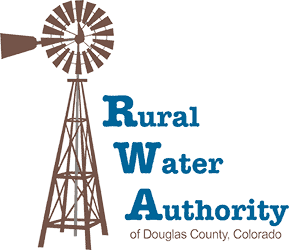Water Studies
USGS Well Monitoring Study
In 2011, the Rural Water Authority partnered with the USGS to begin a well monitoring study to help determine the groundwater levels in the Denver Basin aquifers in Douglas County. The study’s primary goal was to monitor changes in the groundwater levels of these aquifers. Both manual and automated water-level measurements are collected from a network of 36 domestic wells within the county. The next report on the most recent study results will be released in 2019.
Financially supporting ongoing water studies is a major goal of RWADC. More than 70 percent of south Denver’s metropolitan area depends on groundwater. Rural homeowners depend solely on individual groundwater wells for their water supply. With the rapid population growth along the Front Range groundwater withdrawal has increased, resulting in declining water levels.
For more information go to: http://nwis.waterdata.usgs.gov/co/nwis/gwlevels. You will also need Accessing Water Level data from NWIS web pub, and the NWIS site location list.
Site location listDenver Basin Water Availability Study
The USGS published a major study of our water supplies in 2011 called “Groundwater Availability of the Denver Basin Aquifer System, Colorado.” See http://pubs.usgs.gov/pp/1770/. A recent update for the years 2011-2013 can also be found at http://pubs.usgs.gov/sir/2014/5172/.
South Metro Water Supply Study
In 2003, the South Metro Water Supply Authority commissioned a study to investigate water supply alternatives for the South Metro Denver area through 2050. The Executive Summary of the study is available by clicking here.
WISE Water Alternatives Study
Water Infrastructure and Supply Efficiency (WISE) is a partnership between Denver Water, Aurora Water and 10 South Metro water providers to provide a sustainable water supply. After 9 years of planning and more than $50 million in infrastructure, Castle Rock began importing WISE water in April 2018.
Douglas County and the Grandview Estates Rural Water Conservation District have recently surveyed the district’s residents to evaluate alternatives to acquiring WISE water. A completed report is available here.
